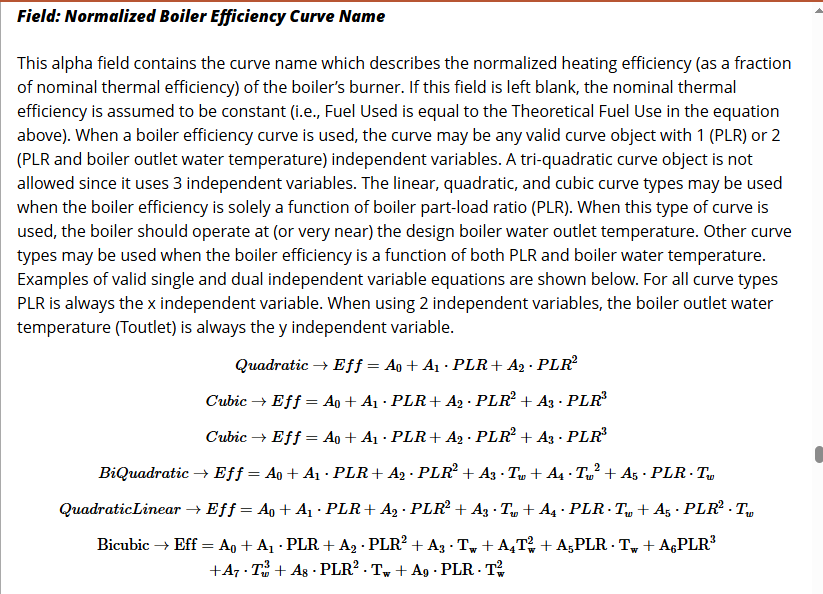Hi there,
I hope you are pretty well.
In the EnergyPlus Engineering Reference (Boilers section), the definition of boiler efficiency and fuel input does not explicitly state whether the calculations are performed on a Lower Heating Value (LHV / NCV) or a Gross/High Heating Value (GCV / HHV) basis.
When we specify the “Nominal Thermal Efficiency” for a Boiler:HotWater object, does EnergyPlus interpret this efficiency relative to LHV or GCV?
Is there an internal assumption in the code that all fuel energy content is on an LHV basis, or does EnergyPlus simply use the efficiency as entered by the user, without any conversion?
For example, if a boiler manufacturer lists efficiency as 90% LHV, and I input 0.90 as the nominal efficiency, am I being consistent with EnergyPlus’s internal treatment?
Finally, is there any official documentation or source code comment that clarifies whether EnergyPlus internally assumes one convention or leaves it to the user to maintain consistency with their fuel data?
I am asking because in Ireland gas billing is on a GCV basis, while much equipment performance data is provided on an LHV basis. To align EnergyPlus simulations with actual operating cost and billing data, I need to know which convention EnergyPlus assumes.
Thanks a myriad,
Behnam
